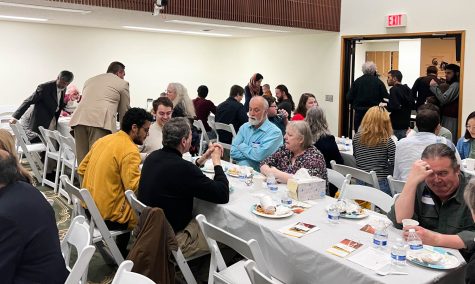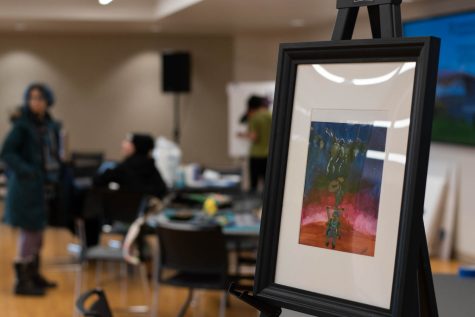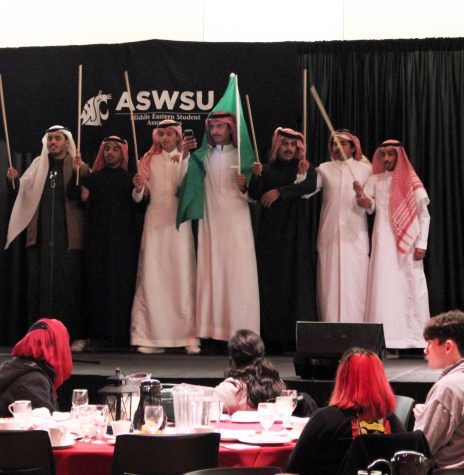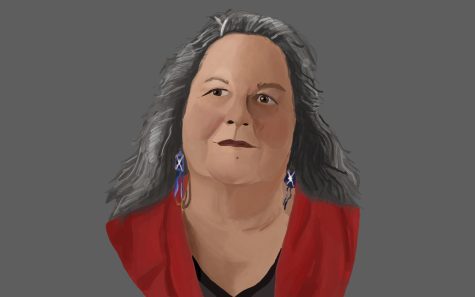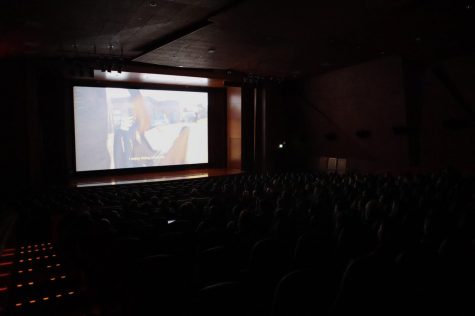“Blackfish” screening brings awareness and controversy
October 15, 2014
Weighing in at around 22,000 pounds, an average male killer whale will present myriad logistical concerns when it makes a splash tomorrow at the Kenworthy Performing Arts Center.
As part of its ongoing Food for Thought Film Series, the Moscow Food Co-op collaborated with University of Idaho Department of Fish and Wildlife Sciences to bring the film “Blackfish” to the public Thursday.
Although the whales will not make a physical appearance, the film will be screened at 7 p.m. at the Kenworthy. “Blackfish” deals with the ethically-difficult and often controversial issue of whales in captivity, examining the risks to the species, as well as the risks to the human trainers who interact with them.
In addition to the screening, the event will also include a question-and-answer panel with former SeaWorld trainers John Jett, Samantha Berg, and Dr. Jeff Ventre.
“I will be focusing on the general health problems of killer whales in captivity, including the breaking of their teeth, dorsal fin droop, social strife from living in such small spaces with unnatural families, and the overall poor quality of life of these whales in captivity,” Ventre said.
Ventre said he and the other visiting trainers are honored to have the opportunity to come to Moscow to discuss the issue through scientific approaches and the film screening.
“We feel presenting evidence based on science is the way to move this issue forward,” he said.
Lisette Waits, professor and head of University of Idaho Department of Fish and Wildlife, said the event is extremely valuable in “engaging the public and engaging the students in important ethical questions regarding whales in captivity.”
The film, as well as the issue itself, has a reputation for controversy. SeaWorld issued a statement, claiming “Blackfish” is “inaccurate and misleading and, regrettably, exploits a tragedy … (T)he film paints a distorted picture.”
The 2013 film first premiered at the Sundance Film Festival, where it was praised for its impassioned journalism on a difficult topic, according to rottentomatoes.com. The film examines the life of captive whale Tilikum and the implications on both the whales and their human trainers. Tilikum was infamous for his involvement in the deaths of three trainers, and has since served as the poster child for many groups advocating against the keeping of killer whales in captivity.
Chris Caudill, UI fish and wildlife faculty member, said from his perspective, the ideal would be for the event to “encourage people to assess for themselves, information presented with an agenda on both sides, and critically think about where the message is coming from.”
Caudill said viewers must ask themselves when considering controversial issues with agendas on both sides such as this, “whose getting paid to present the information?”
The film is relevant for a variety of reasons, in part with our close proximity the Puget Sound, home to multiple pods of killer whales, Caudill said.
The issue of keeping killer whales in captivity is an ethical dilemma just as much as a physical one, said Misty Amarena, education and outreach coordinator at the Moscow Co-op.
Amarena said while institutions such as SeaWorld claim that utmost care is taken to care for the animal, there are major detriments to an animal of this size living in captivity “no matter how large the cage.”
In addition to offering the film and panel discussion, the event will encompass a large interactive component for the attendee, Amarena said.
The event will offer multiple discussion panels and workshops taking place the next day, which allows individuals a chance to become more engaged and involved.
A panel discussion and workshop with the former SeaWorld trainers will take place 9:30-11:30 a.m. Friday at the University of Idaho Law School Courtroom. Additionally, a research seminar, “Emerging Science on the Effects of Captivity on Orcas” with Jeff Ventre and John Jett will take place 12:30-1:30 p.m. Friday at the Fish and Wildlife Sciences building.











